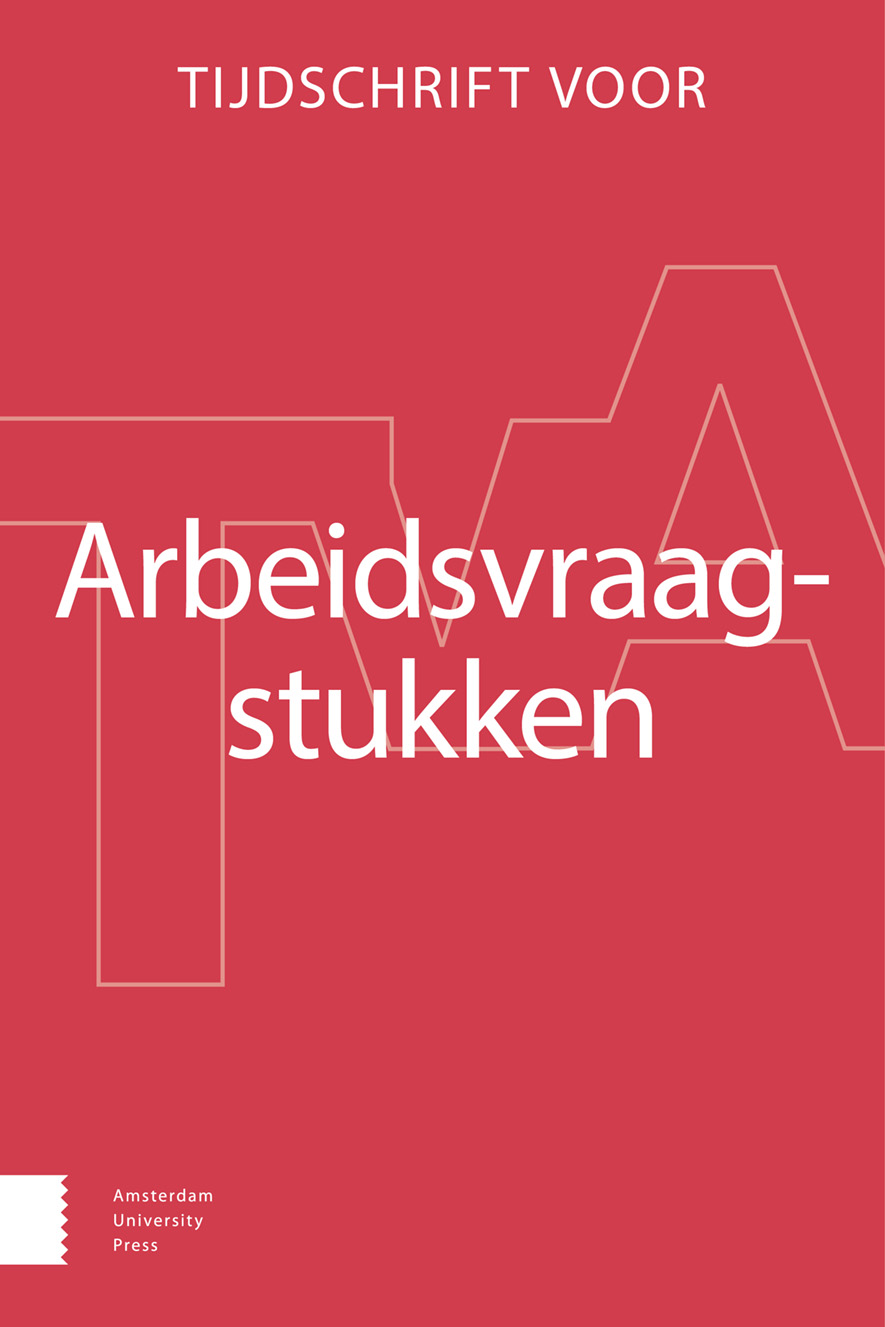-
oa Mantelzorgers in Europa
De rol van betaalde arbeid, generositeit van de gezondheidszorg en nationale normen omtrent zorggedrag
- Amsterdam University Press
- Source: Tijdschrift voor Arbeidsvraagstukken, Volume 31, Issue 4, Dec 2015,
Abstract
Informal caregivers in Europe: The role of paid work, generosity of formal health care and national care norms
This study answers the question why some individuals are informal caregivers and others are not, and why some informal caregivers spend more hours on their caregiving task than others. In particular, it studies the role of paid work, generosity of formal health care and the presence of a strong care norm in the country. Results were based on multilevel analyses on the European Quality of Life Survey 2012 (30,999 respondents of whom 4,377 were informal caregivers). On average, 14.6% of the population aged 18 to 65 in European countries were informal caregivers, and they spent on average 12.3 hours a week on informal caregiving. Generally, paid work was negatively related to (intensive) informal caregiving. Fulltimers were found to be informal caregiver less often than parttimers and housewives, but equally often as retired, unemployed, disabled people. Within the group of informal caregivers, fulltimers spent fewer hours on caregiving than parttimers; housewives and retired people spent most hours on caregiving. A generous health care system and a strong family norm in a country did not correlate with the odds of being an informal caregiver, but were significantly related to intensity of informal caregiving: generosity of health care related negatively and a strong family norm related positively with the intensity of informal caregiving.


